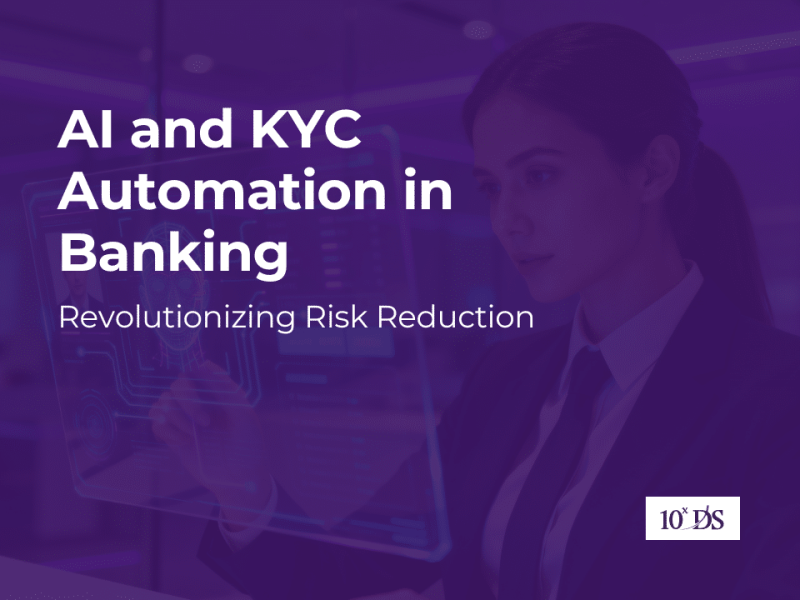
The Impact of RPA in the Real Estate sector with Use Cases
Automating tasks and cutting costs simultaneously is a primary concern for any enterprise. Robotic Process Automation (RPA) works best when an organization requires structured data to automate existing tasks. From improving productivity to accelerating time and generating revenue, businesses are leveraging RPA and Intelligent Automation technologies to the fullest. Real estate businesses involve multiple data processing tasks, including the management of documents, inventory, and accounting. These time-consuming and data-heavy rules-based processes in real estate reduce the productivity of employees and the business. Deploying RPA and Intelligent Automation solutions allows real estate companies to automate manual and arduous tasks, enabling staff to focus on other important functions that add more value to their company.
Challenges in the Real Estate Industry
Like all traditional industries, real estate organizations face challenges. One major challenge is the difficulty in boosting the efficiency of back-office processes. Activities such as invoice processing, data extraction, and document management can take a lot of time and effort.
The above-mentioned tasks are undoubtedly very important for most real estate businesses, but they consume a significant amount of employee time and labor. Real estate businesses are constantly seeking ways to improve the efficiency of these processes. They also want to improve the turnaround time for such activities while reducing costs.
One of the simplest ways real estate businesses can achieve this is by adopting Robotic Process Automation (RPA). RPA enables companies to automate repetitive and tedious tasks, which require significant human capital and time, very easily.
Benefits offered by RPA for Real Estate Businesses
As mentioned earlier, real estate businesses will enjoy several benefits by adopting RPA. For starters, adopting RPA technology will improve the efficiency of several processes, as they can be completed much faster within a digital environment.
The improved turnaround time on different business processes and the automation of tedious tasks by RPA bots will result in cost savings. Accuracy in data entry and several other tasks will increase with the use of RPA bots, as there will be zero distractions or mistakes.
Perhaps the most important benefit of adopting RPA is the time saved for staff and employees who previously had to spend a lot of time on time-consuming tasks. This means that employees can be moved to other areas of the business that need more focus.
Use Cases of RPA In Real Estate
Some of the most common processes that Robotic Process Automation (RPA) will be able to automate for real estate businesses include:
1. Tenant Onboarding
The problematic initial experience of a prospective client can result in rejection, leading the prospect to sign a deal with another landlord. The process of tenant onboarding consists of several time-consuming and manual tasks that may result in a bad experience for customers. Real estate businesses can program RPA bots for extracting and processing information to handle rule-based processes involved in tenant admission. Common RPA use cases in asset management for tenant onboarding include:
- Creating a new application for the tenant
- Conducting criminal background checks
- Verifying employment, income, and references
- Approving or disapproving the tenant
2. Payment Reminders
Most real estate businesses agree that late payments are a repetitive, emotionally taxing aspect of real estate management. Automating rent payment reminders with the help of RPA bots can alleviate this tension. Businesses planning to automate rent payment reminders should consider setting up an RPA bot to check incoming payments and send reminders to tenants who have not made the payment.
3. Portfolio Management
Portfolio management, the process of real estate asset management for increasing and preserving property value, can be enhanced with RPA. Real estate businesses can manage different assets or sell or acquire individual portfolio components more efficiently. Robotic process automation in real estate allows realtors to easily list rented or sold-out properties from their business system. Additionally, businesses can update data on multiple sites for better property visibility.
Conclusion
RPA can offer numerous benefits to real estate businesses, but adopting new technologies like Robotic Process Automation, Intelligent Automation, or Hyperautomation involves challenges. However, starting small by automating a few low-priority business tasks and gradually moving to bigger ones can help businesses see incremental improvements. This approach will reduce resistance during the wider adoption of RPA.
Choosing the right Digital Transformation consulting partner is the first step to success in achieving business transformation.
Talk to our RPA consulting experts to know more!


